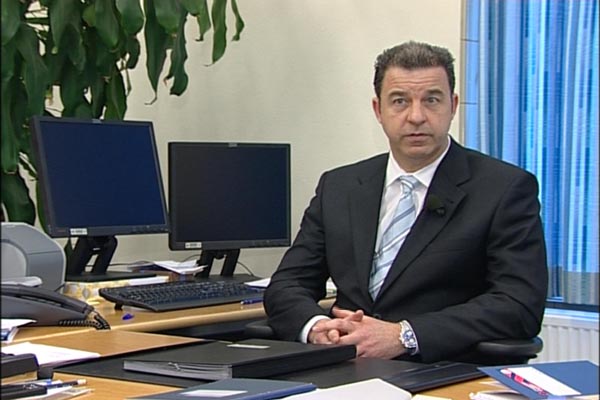Home
PROSECUTOR WANTS SESELJ BACK IN THE HAGUE AS SOON AS POSSIBLE
In the two weeks since the appellate judges ordered the Trial Chamber to 'immediately' suspend Seselj's provisional release, the Trial Chamber has yet to issue the decision to that effect. The prosecution has turned to the Appeals Chamber again, asking it to give the trial judges 24 hours to suspend Seselj's provisional release
 Serge Brammertz, chief prosecutor of the Tribunal
Serge Brammertz, chief prosecutor of the Tribunal In the motion signed by chief prosecutor Serge Brammertz today, the prosecution asked the Appeals Chamber to issue a new order to Judge Antonetti's Trial Chamber, instructing it to suspend the provisional release granted to the accused Seselj. In the new motion, the prosecution asked the Appeals Chamber to set a one-day deadline for the Trial Chamber, instead of instructing it to issue the order for Seselj's return to The Hague 'immediately', as it had in the previous document.
The prosecution recalls that on 30 March 2015, the Appeals Chamber ordered the Trial Chamber to reverse its decision on Seselj's provisional release 'immediately' and to order Seselj's return to the Detention Unit. It would appear, however, that not everyone has the same understanding of the term 'immediately', as two weeks after the appeals order there is no decision yet on the return of the accused to The Hague. Instead, the trial judges first waited 10 days to issue an order to the Registry to verify Seselj's health and submit 'accurate medical reports', the prosecution notes.
The prosecution motion stresses that the Appeals Chamber's order was 'unequivocal':it did not allow the Trial Chamber to deliberate if and when it would issue the decision for the return of the Serbian Radical Party leader to The Hague.In the prosecution's view, Seselj's medical status is irrelevant for the decision to order him back into custody. According to the Appeals Chamber's decision, the only relevant element is that when Seselj arrived in Serbia, he stated he would not return voluntarily to The Hague. Seselj thus breached the first of the two conditions for hisprovisional release.
Seselj was released on humanitarian grounds and allowed to await the trial judgment in Serbia. Only two minimal conditions were imposed: he was to return voluntarily to the Detention Unit when ordered to do so, and he was not to threaten victims or witnesses. Seselj is on trial for the gravest war crimes committed in Croatia, Vojvodina and BH.
Linked Reports
- Case : Seselj
- 2015-04-10 TRIAL CHAMBER IN NO RUSH TO BRING SESELJ BACK TO THE HAGUE
- 2015-03-30 SESELJ ORDERED TO RETURN TO THE HAGUE
- 2015-02-06 SESELJ RESPONDS TO PROSECUTOR’S MOTION
- 2015-04-23 DEADLINES MULTIPLY IN SESELJ’S CASE
- 2015-04-28 JUDGES REPRIMAND SESELJ
- 2016-02-10 SERBIA REPRIMANDED AGAIN FOR NOT COOPERATING WITH TRIBUNAL
